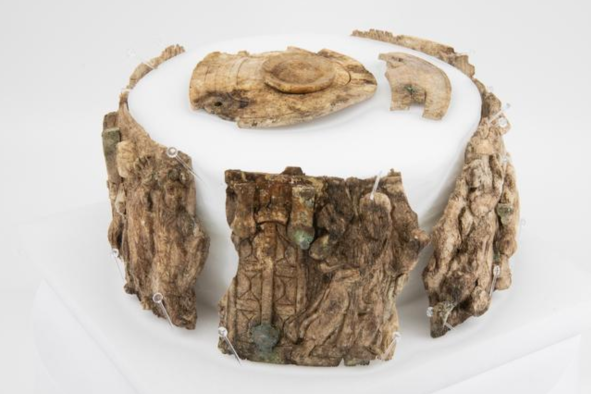Eating prunes has been long known to keep your toilet trips regular, but scientists have found another benefit of these dried fruit snacks.
Prunes have been linked to improved bone structure and strength in postmenopausal women, according to a new paper in the journal Osteoporosis International.
Eating prunes every day may therefore slow age-related bone loss, and reduce the risk of bone fractures, the researchers said.
"This is the first randomized controlled trial to look at three-dimensional bone outcomes with respect to bone structure, geometry and estimated strength," study co-author Mary Jane De Souza, a distinguished professor of kinesiology and physiology at Penn State, said in a statement. "In our study, we saw that daily prune consumption impacted factors related to fracture risk. That's clinically invaluable."
As people age, bone density tends to decrease. This is partly due to a natural decline in the body's ability to regenerate bone tissue. The balance between bone resorption (the process where the bone is broken down and its minerals released into the bloodstream) and bone formation shifts, resulting in more bone loss than formation.
The decline in estrogen levels during menopause significantly accelerates bone loss, meaning that postmenopausal women are at particular risk. Estrogen helps protect bone density, so lower levels lead to increased bone resorption. In men, a gradual decline in testosterone can also contribute to bone weakening.
Increased bone loss can result in osteoporosis, which is when bone becomes porous and less dense, and more prone to fracture. Across the U.S., more than 10 million people have osteoporosis, the majority of whom are postmenopausal women.
Prunes are dried plums, typically derived from European plum varieties, particularly the Prunus domestica species. They are rich in dietary fiber, vitamins (especially vitamin K and B vitamins), minerals (such as potassium and magnesium), and antioxidants, and are commonly recognized for their health benefits, including promoting digestive health and helping to alleviate constipation due to their high fiber and natural sorbitol content.
According to the paper, prunes contain lots of chemicals such as polyphenols, which dampen the process of bone loss.
The researchers describe how they examined the effects of prunes on bone density in 235 postmenopausal women, who ate either no prunes, 50 grams of prunes a day (4 to 6 prunes), or 100 grams of prunes daily (10 to 12 prunes). Their bone density was then measured every 6 months using special scans that measure 3D bone mass and bone strength.
"When we look at bone mineral density, we're looking at how much bone there is, but we also want to know about the quality of the bone. When we look at a three-dimensional picture, we can look at bone structure, geometry and micro-architecture. In other words, it tells us how good the bone is," De Souza said.
They discovered that after one year, shin bone mass density and shin bone strength had decreased in the women who had eaten no prunes, while those who ate both 50g and 100g daily had maintained their prior bone density and strength. They also had preserved bone structure.
Both prune-eating groups saw this benefit, but some of the higher dose group dropped out due to growing bored of eating 10 to 12 every day, meaning that the 50g diet may be more feasible for people in their day-to-day lives.
"It's pretty exciting data for a 12-month study," De Souza said. "We were able to maintain and preserve bone at the weight-bearing, cortical bone of the tibia and the maintenance of cortical bone and bone strength is key to avoiding fracture."
There was also some evidence that prune consumption could reduce osteoporosis risk, and previous research has found that prunes preserved hip bone mass density. The researchers hope to further investigate which bones are helped by prune consumption and why.
Do you have a tip on a science story that Newsweek should be covering? Do you have a question about prunes? Let us know via science@newsweek.com.
Disclaimer: The copyright of this article belongs to the original author. Reposting this article is solely for the purpose of information dissemination and does not constitute any investment advice. If there is any infringement, please contact us immediately. We will make corrections or deletions as necessary. Thank you.



